Search
Lost in Translation: The Social Language Theory of Neurodivergence (Part 1 and 2)
A de-pathologising and enabling explanation of typical neurodivergent perception and expression culture.
By Janae Elisabeth, a researcher-storyteller and neurodiversity advocate from western North Carolina.
The two rather concise blog articles are suitable for handing to people who may ask (or may not have asked) what this neurodiversity thing is actually about. And if you are divergent, you will probably recognise yourself.
---
In part 1, Janae lists the most defining differences in communication and culture, in the sibling form of "we".
Quote:
>The dominant social group labels our way of being in the world as disordered because they don’t understand us. Even though they don’t understand, the dominant culture controls the narrative about our differences. > >Society believes the experts who are not part of our culture, who see brokenness where there is order. We gradually start to believe the myths ourselves and lose all sense of self-esteem. We come to hate ourselves for being different. > >How did we get here? The pathology paradigm is a system of diagnostic labels designed by neurotypicals which categorizes our genetic differences and traumatic stress responses as illnesses, disorders, deficits, and deficiencies. [...] > >Up until now, scientists have studied us like they study animals — not asking our opinion or considering that there may be a complex system of mind behind the behaviors that they do not understand. They theorize that we are less empathetic, less aware of others, less social. More like robots than people. > >They have largely not tried to understand the biological mechanisms that create our experience of self. Instead they have tried every means possible to force us to act neurotypical.
(emphasis partly done by me -- yeah that's a long quote ...)
Headlines:
Processing differences cause us to speak different social languages / Emotions / Empathy / Nonverbal Communication and Body Cues / Words Mean Things / Social Rules / A Different Value System / Skills and Abilities / Reactions to Stress, Pain, and Overwhelm
Part 2:
Link: Lost in Translation: The Social Language Theory of Neurodivergence (part 2 of 2)
In part 2, Janae writes about the impact of the invalidation done by a pathologising clinical approach, the mistreatment following the misunderstanding, and ways in which neurodivergence can be supported, accepted, and embraced.
Quote:
>The med/psych system is losing or failing most neurodivergent people. This is the most common theme I am hearing from patients, parents, teachers, and therapists alike. And it’s not just that we are “falling through the cracks” in the system or being neglected, though those are valid concerns. The bigger concern is that the med/psych system is actively harming many neurodivergent people by forcing cultural assimilation. >[...] >A study in 2019 found that psychiatric diagnosis is scientifically meaningless because there is too much subjectivity in diagnosis and not enough understanding of trauma. And when we look beyond simple accuracy and also consider impact, the failure of diagnostic labels becomes clear. Diagnostic labels as they are currently given are worse than useless, they are all too frequently harmful.
(emphasis by me)
Headlines:
While speaking different languages makes relationships difficult, invalidation makes relationships impossible / Self-image, depression, and shutdown / Social rejection, abuse, and PTSD / Mistreatment, re-traumatization, and forced treatment / The neurodiversity paradigm recognizes our different languages and seeks to understand miscommunications instead of pathologizing them. Here are 7 key ways that neurodivergence can be supported, accepted, and embraced
---
Further reading:
- The paper mentioned in the above quote is available for download as PDF when you search the internet for the title "Heterogeneity in psychiatric diagnostic classification" +PDF. It's interesting for understanding how non-scientific the standard psychiatric assessment actually is.
- In another entry, Janae talks about how the DSM-5 criteria fail. Direct link: A Neurodiversity Paradigm Breakdown of the DSM-5 Criteria for Autism
- ... or if you prefer an informed eye-roll done by Yo Samdy Sam on y-tube: Autism diagnosis criteria: explained (DSM-5).
A Field Guide to Earthlings: An Autistic/Asperger View of Neurotypical Behavior
A Field Guide to Earthlings: An autistic/Asperger view of neurotypical behavior Covers nuances of friendship, dating, sm...
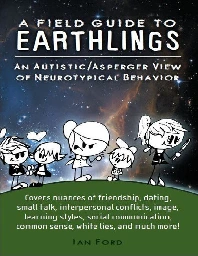
A free ebook written for autistic people that describes the neurtotypical world. It can be funny and quite insightful!
Autistic people – The cultural immune system of human societies
If neurodiversity is the natural variation of cognition, motivations, and patterns of behaviour within the human species, then what role do Autistic traits in particular play within human cultures …
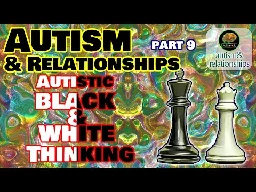
A thorough blog essay covering contributions that autistic people make to society as a whole.
Online Self-Report Assessment Related to Autism
Do you think you might be autistic? Have a look at the various autism tests and other psychometric tests (empathy, alexithymia, stimming, camouflaging, etc.) we compiled for you!
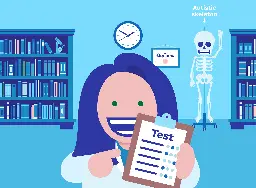
A thorough list of scientifically based assessments with descriptions and ability to complete and score. One of my favorite things about a few of these test is that they show that the spectrum isn't a continuum, but more of a web of traits that are on separate but related continua.
Feel free to share your scores to engage in discussion!
Note: A self-assessment is not sufficient to properly assess autism. These assessments can provide helpful insight, but a proper assessment includes at least a thorough interview by a licensed mental health professional that specializes in autism assessment.
Asperger/Autism Network (AANE)
Looking for an online community who understands what life is like for you? Join one of AANE’s staff moderated Online Google Group Discussion

A list of available online support groups for autistic people.
The Five Neurodiverse Love Languages
The 5 neurodivergent love locutions: infodumping, parallel play, support swapping, Please Crush My Soul Back Into My Body, Penguin Pebbling
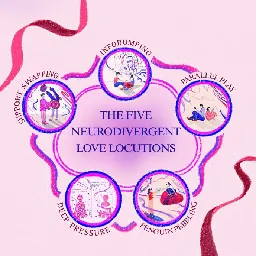
An essay covering the 5 major strategies that autistic and ADHD people use to communicate they love you ❤️
An Aspie's Guide to Flirting YouTube video (8:13 mins)
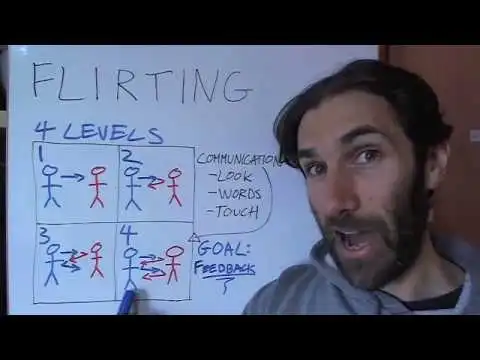
YouTube Video
Click to view this content.
Created by the popular Autism from the Inside YouTube channel, this video provides a guide on flirting for autistic people.
After Diagnosis YouTube playlist (4 videos)
A YouTube playlist of 4 (12-17 mins videos) covering expectations and advice for those that have been recently diagnosed as autistic.
Is it emotional abuse YouTube playlist
An extensive YouTube playlist reviewing signs of emotional abuse to help possible victims assess their familial and romantic situation.
How Abuse Mars the Lives of Autistic People
Many people with autism experience a triad of trauma: neglect at home, abuse from trusted adults and bullying at school or work.
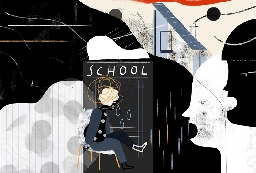
A well-sourced and compassionate review of the abuse autistic people may often experience and its impact.
12 Ways to Recognize Passive-Aggressive Behaviors (video)

YouTube Video
Click to view this content.
"In this video, I dive into the topic of passive aggressive behaviour. What is it, and how can we recognize it in ourselves and others?"
Asperger Syndrome
Asperger syndrome’ (Asperger’s) is no longer used as a diagnostic term for autism and is considered controversial due to the history of Hans Asperger.
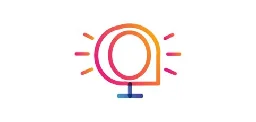
A review of Asperger syndrome, it’s history, and how those that are Aspies experience the world.
Note: Asperger syndrome is no longer in the DSM and has been lumped under Autism Spectrum Disorder (ASD).
About Autism - A Numbered List Describing Autism
Autism is a developmental disability that affects how we experience the world around us. Autistic people are an important part of the world. Autism is a normal part of life, and makes us who we are. Autism has always existed. Autistic people are born autistic and we will be autistic…

